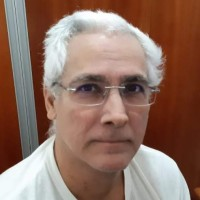Thermodynamics 2.0 | 2022 Program: Sessions and Abstracts
Mon - Wed, July 18 - July 20 , 2022 , Boone, North Carolina
Session T12: Theoretical Advances
16:15-17:30. Tuesday July 19, 2022
Chair: Todd Hylton
Title: General Framework for Open Systems
Bio-sketch
I am 59 years old, and my academic background is mechanical engineering, with master degree on energy supply and efficiency technologies. My current skill is project management, and I build networks for matching project deliverables to resources. I entered Petrobras in Rio de Janeiro/RJ in 2005, and I have been managing both capital and R&D projects from conceptual phase up to bidding phase, and also technical assistances on installation phases. My corporate clients are the business and bidding areas. The capital projects comprise downstream assets, and the R&D projects comprise solar power, wind power, and energy efficiency. Over 2001-2004 in Resende/RJ I was a college teacher on product development and economic engineering, and I worked in 2004 at Volkswagen Truck and Bus as a power train development engineer. Over 1987-2000 I worked in Xerox Brazil, Xerox US, and Xerox Canada. In Xerox Brazil, Itatiaia/RJ, together with Xerox US as a manufacturing and product engineer and manager over 1987-1998, I developed both fabrication and assembly lines for product sub-assemblies. Over 1999-2000 in Xerox Canada, I was product engineer on a Xerox Brazil-Xerox Canada partnership for developing a design center in Brazil.
Author(s):
(Petrobras, Rio de Janeiro, Brazil)
Abstract:T12.137
Abstract
Leontief, Nobel laureate in Economy, argued: “How long will researchers working in adjoining fields…abstain from expressing serious concern about the splendid isolation in which academic economics now finds itself?”. That may be difficult for researchers from some overly specific domains because they may build hard boundaries against other knowledge domains. Therefore, it might be worth other researchers investing time for closing such knowledge gaps. By proper language translating among knowledge domains, unsolved problems or missed opportunities might reveal themselves as not so hard to treat as they appear.
To somewhat close such gaps, this paper defines a system as a subset of environment, which is all undifferentiated fields whatsoever, the former being differentiations of the latter. To relate system and environment, one uses the concept of entropy to model the availabilities of environment towards a system, which then gets separated from other systems and environment by boundaries. From such fundamental definitions one develops a simultaneous equation set based on the conservation of quantities and entropy to calculate the maximum sizes of the elements within a system. If one manages to know the network distribution factors amongst the elements of a system, one can calculate the maximum sizes of such elements to cope with the support capacities of environment, also find the optimum system by tweaking the very network distribution factors. Some applications are given: hybrid energy farm, circular system, mathematical relation for project appraisal, EVA-Economic Value Added revisited, risk value added approach, and project as a system. In addition, the entangled quantities time, entropy, and energy are readdressed in one of the appendixes.
At last, the definitions of environment and system enable discoursing about broad and speculative issues like life, consciousness, individuality, and god, for which there is no consensus by the canonical knowledge fields.
Keywords: energy, entropy, environment, system
